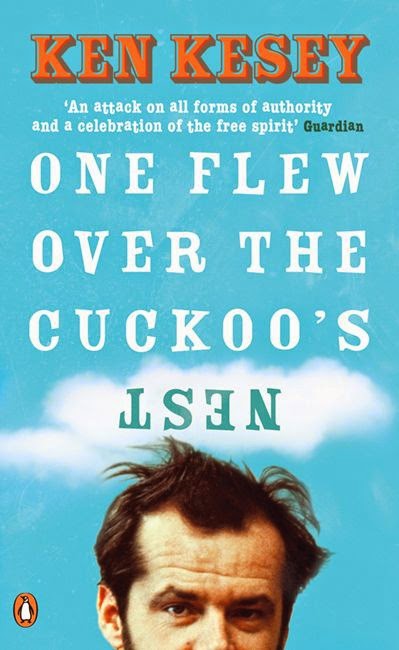 Staff Review by Chris Saliba
Staff Review by Chris SalibaKen Kesey's bitingly real critique of corporate and political power working against the individual is just as powerful today as it was when first published over fifty years ago.
Ken Kesey based his 1962 novel, One Flew Over the Cuckoo’s Nest, on his personal experiences of working in a mental health facility in Menlo Park, California. He also volunteered to take psychoactive drugs as part of Project MKUltra, a CIA research program that experimented in the behavioural engineering of humans. How else could one explain the contents of Kesey’s famous novel? It’s the sort of stuff you simply couldn’t invent.
The novel employs an interesting narrative device, with the whole story told by “Chief” Bromden, a half-Native American inmate who is thought to be deaf and mute. Bromden is disenfranchised. His native lands have been aquired by government and business interests, destroying his people’s traditional way of life. He has stopped talking because, as a powerless Native American, people have stopped listening. He’s invisible and worthless to the American capitalist system. (Bromden calls these political and business interests “the Combine”.)
Enter Randle Patrick McMurphy. He has faked insanity so he can get out of prison (he’s doing time for battery and gambling) and hopefully enjoy an easier ride in a mental hospital. Things don’t go to plan, however. McMurphy hadn’t counted on the head administrative nurse, Miss Ratched, who rules the hospital. Her power is not overt, but subtle, relentless and insidious. She creates a sense of anxiety and inadequacy in the all male patients in the ward. McMurphy tries to rally the patients to resist her petty rules and control. He’s very much a messy, democratic figure, pushing back against power and authority. McMurphy’s time in hospital doesn’t end too well, nor does it end particularly well for Miss Ratched. In some ways One Flew Over the Cuckoo’s Nest is a tragedy; it’s so confrontational it forces you to face a lot of its themes at uncomfortably close quarters.
The novel is at core a critique of American corporate and political culture, and the power it wields. Chief Bromden is the perfect person to narrate this story of insidious and subtle control over the ordinary citizen. He is at the bottom of the social heirarchy. He’s been silenced and rendered invisible by “the Combine”. Yet Kesey has him tell the whole story from his point of view, highlighting how every dispossesed person is not some silenced casualty of economic progress, but a thinking, feeling human being.
Nurse Ratched is really a tool of “the Combine”. She’s middle management and terrified of losing her power. It’s this fear more than anything that makes her support the status quo. In many ways she’s as stuck as everyone else is in this system. She doesn’t seem to have anything to gain from running the hospital with such a firm hand except a regular paycheck. She’s like many middle class people who work hard for everything they have, but live in fear of losing it and resent those below them who they think are loafing.
This is a scary, depressing, original and frighteningly true book. Doubly depressing: it hasn’t dated since it was first published over fifty years ago. It’s still bitingly relevant.
One Flew Over the Cuckoo's Nest, by Ken Kesey. Published by Penguin. ISBN: 9780141024875 RRP: $12.95
To sign up for our monthly newsletter, featuring new releases, book reviews and favourite articles from around the web, click here.
No comments:
Post a Comment